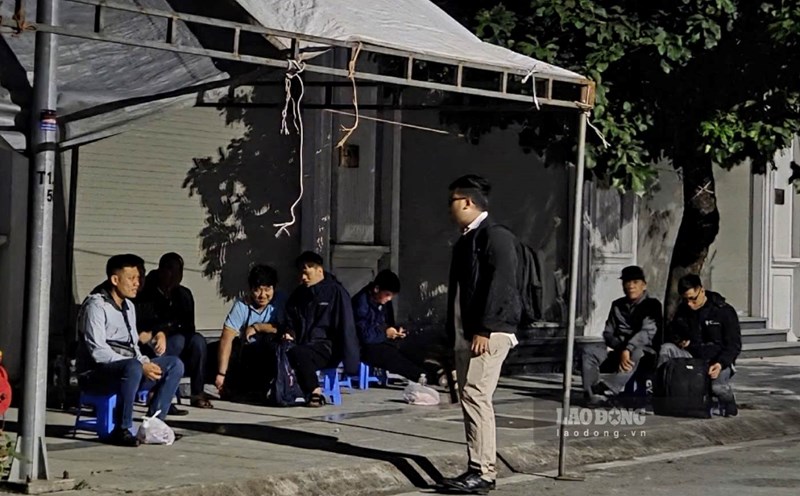The 2015 Civil Code includes forms of inheritance including: Inheritance by will and inheritance by law.
(1) Case 1: Sharing inheritance of real estate according to law
Pursuant to Article 650 of the 2015 Civil Code, the division of legal inheritance is applied in the following cases:
- No will;
- Unlicensed will;
- The heirs under the will die before or at the same time as the testator; the agency or organization that is entitled to inherit according to the will no longer exists at the time of inheritance opening;
- Those who are appointed as heirs according to the will but do not have the right to inherit or refuse to receive the inheritance.
Specifically, according to Article 651 of the 2015 Civil Code, those who are entitled to inherit according to the law include:
- First inheritance: wife, husband, biological father, biological mother, adoptive father, adoptive mother, biological child, adopted child of the deceased;
- Second inheritance: paternal grandfather, paternal grandmother, paternal grandfather, maternal grandmother, biological brother, biological sister, biological younger sister of the deceased; biological grandchild of the deceased who is the paternal grandfather, maternal grandmother/outside;
- Third line of inheritance: paternal grandfather, maternal grandfather of the deceased; maternal aunt, aunt, uncle, biological uncle, biological uncle of the deceased; biological grandchildren whose deceased is aunt, aunt, uncle, uncle, biological uncle; intestinal replacement of the deceased's paternal grandfather, maternal grandfather, maternal grandfather.
Thus, if the father does not leave a will or an illegal will, the child (even living with the mother) is still in the first line of inheritance, so they are entitled to inherit the same inheritance as other people in the same line of inheritance.
(2) Case 2: Dividing inheritance of real estate according to will
According to Article 624 of the 2015 Civil Code, a will is an act of expressing the will of an individual to transfer his/her assets to another person after death.
Therefore, in case the deceased leaves a will to decide on the division of inheritance, the division of inheritance will be prioritized according to the content of the will. However, for the will to be legally valid and recognized, it must be made legally, in accordance with the correct order, form and conditions prescribed by law.
Pursuant to the provisions of Article 630 of the 2015 Civil Code, a will made by a person with full civil act capacity in the form of a document will be considered legal if the following conditions are fully met:
- The testator is clear-minded and wise while making the test; not deceived, threatened, or forced;
- The content of the will must not violate the prohibitions of the law, not be contrary to social morality; the form of the will must not be contrary to the provisions of law.
- A written will without notarization or certification is only considered legal if it meets the conditions specified in Clause 1, Article 630 of the 2015 Civil Code.
In addition, a legal will is made if the testator expresses his or her final wish in front of at least two witnesses and immediately after the testator expresses his or her final wish, the witness records it, signs the same name or point.
Within 5 working days from the date the testator expresses his or her final will, the will must be certified by a notary or a competent authority to confirm the signature or certificate of the witness.
In case the will is made in accordance with the provisions of law, the will shall be considered legal and effective.
Thus, if the father has a legal will, the child can only inherit if his name is recorded in the will. If there is no name, the inheritance cannot be divided according to the will.
(3) Case 3: The heir does not depend on the content of the will
Pursuant to Point b, Clause 1, Article 644 of the 2015 Civil Code, minors who are unable to work are still entitled to an inheritance portion equal to two-thirds of the portion of a legal heir if the inheritance is divided according to the law, in case they are not allowed by the testator to inherit or are only allowed to inherit less than two-thirds of that portion.
Therefore, if the child is a minor but has lost the ability to work, he/she will still receive at least 2/3 of the inheritance rights according to the law, even if his/her father is not listed in the will.
Thus, children following their mother after divorce does not affect their inheritance rights from their father. The child is still entitled to inherit according to the provisions of law or according to the content of the legal will left by the father.











